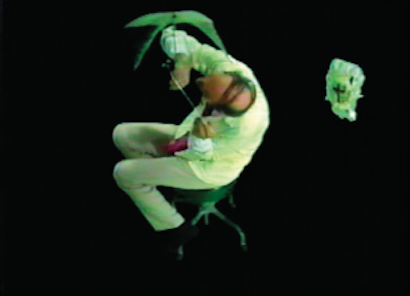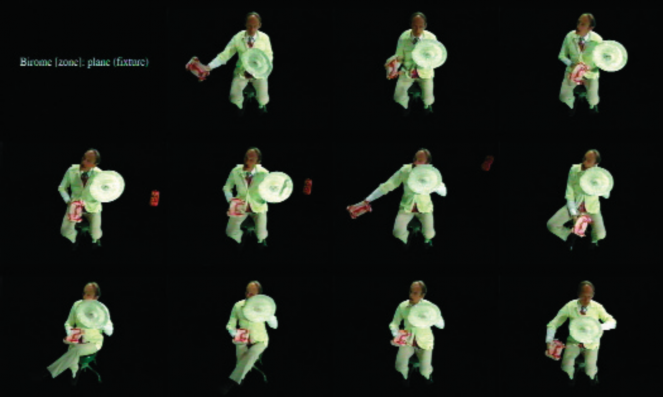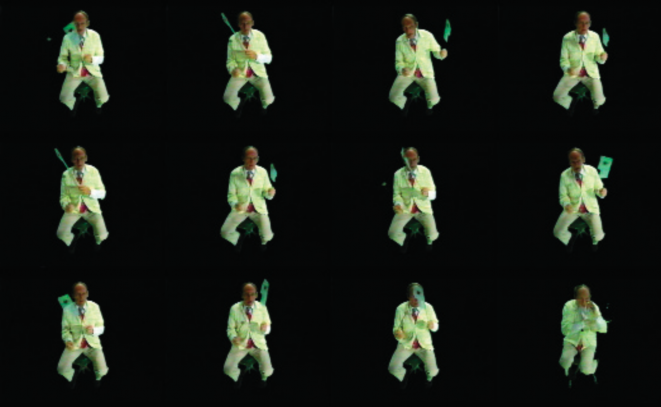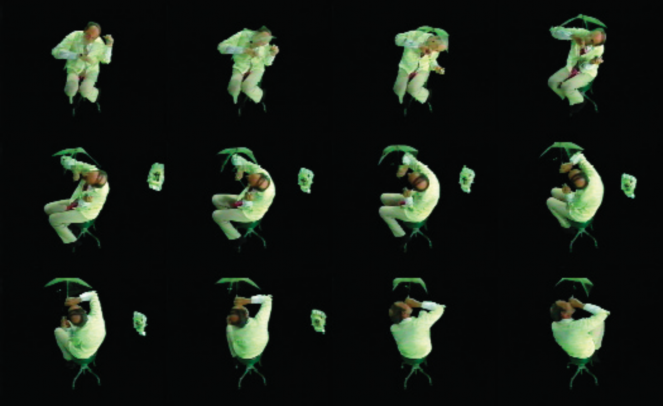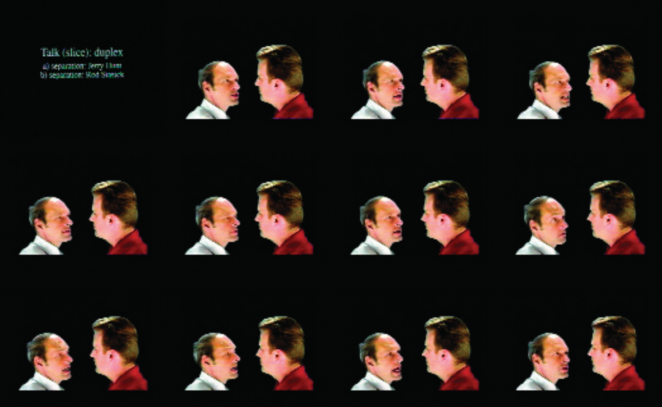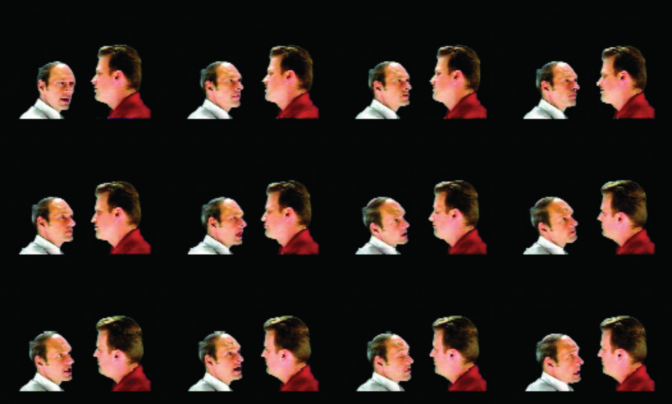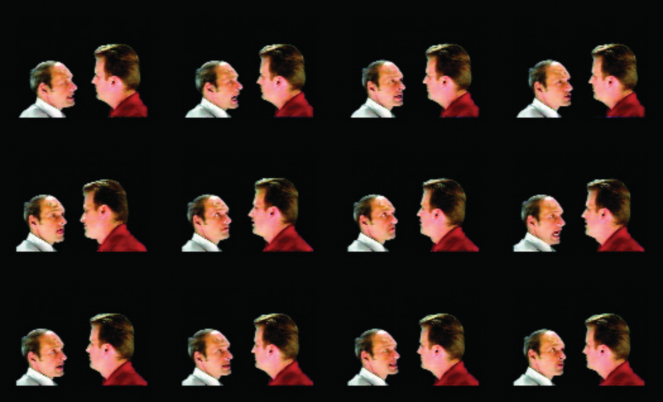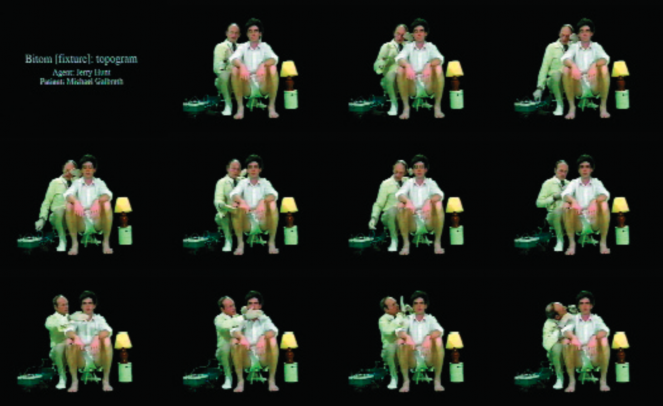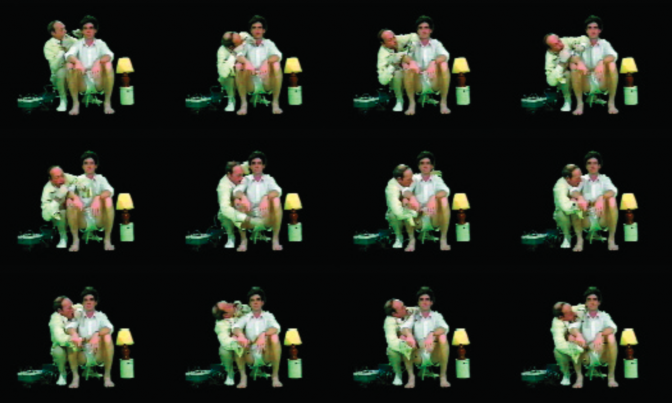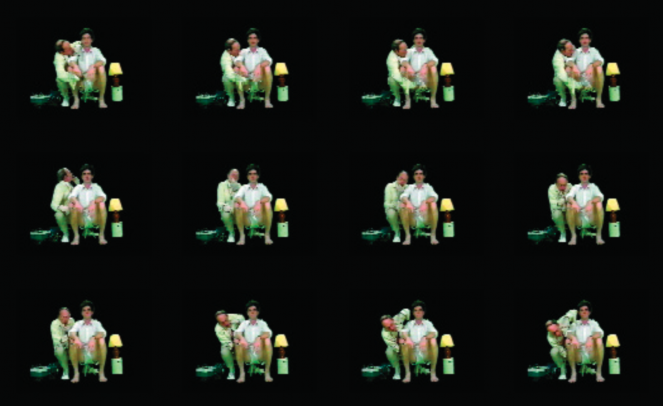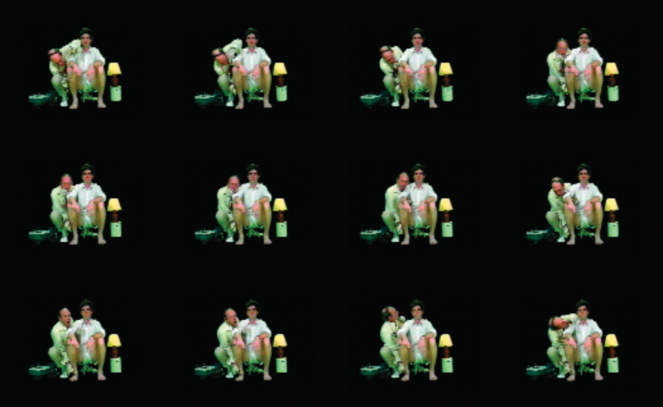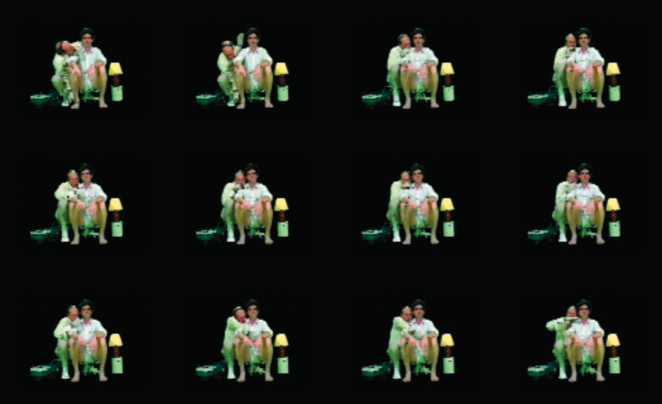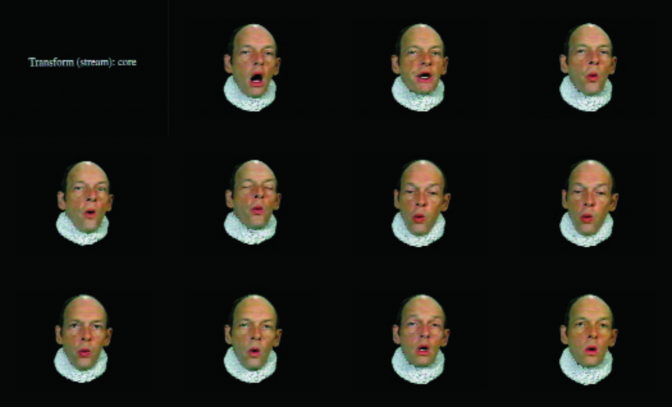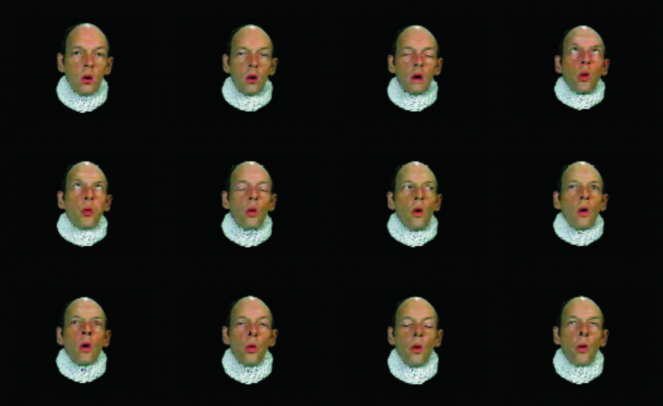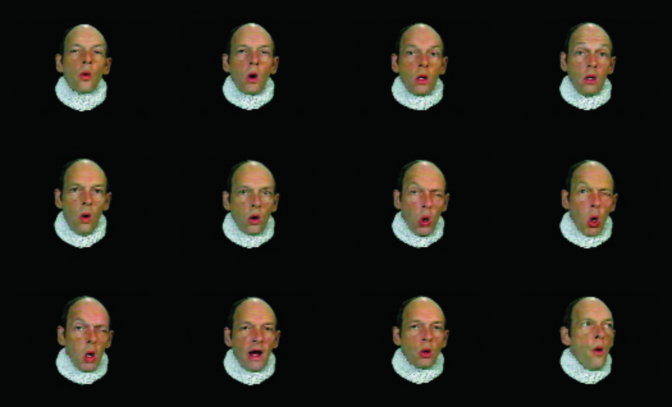Behold The Coach, In Sorrow, Unemployed
by Will Eno
Dramatis Persona
The Coach
Setting
A press conference. A podium with microphones mounted on it. Periodic flashbulbs
THE COACH
(He enters. Cameras flash.) All right, everybody, let’s just get going. You people know what I’ve come here to probably say. This should all come as all as no surprise. The phrase, of course, you are familiar with. It was a “building year,” this last year was. We suffered some losses, sure, we suffered some, last season, and we’ve had to start out all over, in a fashion; we’ve had to come at this thing as if it were some kind of a– and you folks in the press will have to tell me if this is a pleonasm– a new beginning. We made some changes here and there and here and we made these, mainly, mostly, with the fans in mind, because we wanted the fans to be happy, in our minds we wanted the fans to love us. And I think they should be happy, I think they should love us. Listen, last year was not the easiest year. The plan was it would be for building, for rebuilding, for replacing what was lost, replenishing what was gone. Our strategy was, in theory, to betray that which had become merely habit, to betray our very very fear, that thing which has in theory kept us alive, that thing which says to us: Don’t cross the street without looking everywhere in the world first; Don’t speak your mind and certainly never your heart. That fear which keeps you from calling, from calling out into the game night, from dropping to your weakened knees and screaming from the bottom to the top of your burning smoking lungs: “Jesus please! Could somebody just–. Christ! I am going to die, to drop dead, some slow-news Saturday, an off-season Monday, so much not yet done, good-bye, forever, as I die an unremarked and ‘He-did-not-look-so-calm’ death. I don’t know what color pants go with what color shirt. I don’t know what I go with. I don’t know the meaning of my own bleeping heart. My personality is killing me. Would somebody please just please help me and everybody live!” (He pauses.) That is what this year was. We had to look hard at a few things and, surprise surprise, we found that they looked hard back. But I think we have to be happy. We broke a few attendance records. We sold a few hot dogs. We played some ball, and got some sun. It was the life, it really was, and, granted, this was not the greatest year, no, I guess it was really kind of a shambles.
I had no idea how hard hard was until this year came around. My God, Jesus, so hard. Nights, whole nights, weeks of nights, in a row. I bet I walked a thousand miles on my street alone. I came home and went out, walking. My eyes running, me thinking of the Dark Lady of my own incompetent sonnets, me saying hardly just above my breath, “I remember you. I almost completely remember you. In the year since you, there hasn’t been anything but ashes and paperwork. A year of cigarettes and minor car crashes. And I will never love any thing or body again. And I am not young and handsome. And I could not coach a gallon of water out of a paper bag.” (He pauses.)
So you see, I’ve had my doubts. I’ve had what you people call Personal Problems. But I tried. To run things different. With a little elegance, a new uniform, with some sense of calm amidst the– I don’t know, you tell me, you lived through it, too. What was this year, what happened? Who, or–. Christ Jesus Christ Christ Christ. (He directs the question halfway toward a person in the audience.) What was it? What did you feel this year? Of what would you be speaking, if were you standing here, this year, speaking of the last? And did any one of us have what he would call a winning season? And what would that look like? And could someone tell me, while we’re at it, when is High School over, when comes High School to its high schoolish end? Because I really don’t understand when the seriousness is supposed to start. And I am so filled with wanting, I so crave to know, to know a little, to be sure, just a little anything, a fact, a meaning, a song or jingle. A lullaby, to be put to bed by, to sleep, to sleep off my life. A gentle anthem– a bluenosed tribute to the old man at the helm. (He pauses.) It was a real hell of a hell of a time, this year. What’s that saying? About the penguin? And the fifty-yard dash? Well, that’s exactly what it was. A trying time. A building year. An endless gorgeous endless loss. Which now is now over. And we have how many more left left to us to lose? (A pause.)
Now, I know you guys in the press are going to have a field day with some of the things I’ve said up here today. And I know you’re probably thinking: “Something seems to have kind of crushed the fire this guy had when we hired him.” Or: “Could someone in this red-eyed poet-souled state ever win the division and go on to seize the brass ring, what with the distraction of his heart-broken relation to a fragile lass of a woman of a girl, who can not even say with any authority what her own last name is?” Well, I’ll tell you, because I came here to tell you a few things. I came here to feel the burn from your flash bulbs, and to speak a few things– my losing heart included. And the answer is, I don’t know. I don’t know if I can lead anyone to victory, or even lead anyone anywhere. I don’t know if my plan is a good one, or even if I have one.
You have to let me turn my season-worn face toward our record-breaking American heaven, to the stadium blue air overhead of the world, and let me say, you’ve got to please let me declaim, and I quote: (He pauses.) I don’t know. In general. And, in particular, in particular. But I do know that someone has to be everywhere. And I am the one who is standing here now, before all of you who are sitting there, there. I am the one in the position I am in. I see a man bowed like Atlas under the weight of his whistle. I see him smoking himself blind, poring over blank pieces of paper. I am that man. I lived as that man through this last year, past. And I think I should be happy. I think we should all be very terribly proud and happy, and happy and afraid, and afraid and thrilled, really, to death at the upcoming year and all of the life it will naturally contain.
This is my feeling.
We have time for one question.
Cameras flash. Blackout.
End
Mr. Theatre Comes Home Different
by Will Eno
Dramatis Personae
Mr. Theatre
Setting
The stage set of a living room. A table with a telephone and a vase of flowers on it.
(He enters with an open umbrella. He shakes the rain off of it and places it in a stand. He checks his watch, takes his coat off, looks around as if expecting someone. He ponders over the set and then, he sees the audience. He sits. He stares. He stands. He starts to leave and then turns around and comes back toward the audience. He flips the table out of his way, kicks the chairs over.)
MR. THEATRE
Strike the set! Strike the world! My former life, gone! Everything stricken, struck, gotten rid of. Now, set the stage again for something nothing less than me: some man, a wound; an animal, with English. Here I am. I am come! Born from the wings, or somewhere in the back of the theatre. Alone. (He sees the telephone.) But whom have we here? Someone? (He picks up the telephone.) Hello? No one? Prop! (He throws the telephone aside. He notices a flower on the floor.) Speaking of nature— which I was, and still am, and always will— here is some that someone planted here. (He picks it up.) Good evening, flower. Did you grow today? Get some sun? Look at you, you lovely fresh-cut dying thing. Have you come to upstage me? (He eats the flower.) That tasted the way you would think a flower should. (He chews.) This last, I find a terribly suggestive remark. But I meant for it to suggest or augur nothing; beyond that of my darker purpose, which is, in fact, dark. Is, in deed, darker. But, between you, me, and the lighting, I should tell you, in an aside: whisper, whisper, whisper.
Gentle’s all, my name is blank. And I have come and kicked things over. I have breathed badly. I will act quickly, entertain myself, and then leave. This is my character, as I would have you have it; and this, my interior life, as I would, for you, outwardly live it. (He kicks a chair offstage. Laughing.) But I— I would like you to know— I yearn.
Witness me yearn.
(On bended knee.) My love! my love! if you are out there: why don’t you love me, and why aren’t you out there? I should look up your old address. So as for us to enact the love scene that is coming. That is here. Now! Kiss my moving mouth. I am all afire, burning. (He purses his lips as if to kiss, closes his eyes, and rises to stand on the tips of his toes. He stands, so, and then opens his eyes and unpurses his lips.) By the way, the fire exits are located here and here, and in the event of a fire, or should you hear a fire alarm, or, should you see someone run screaming past you in flames, or, simply, should you panic, anxious, and seek to suffer alone, like an injured thing does, please use the doors, either there or there, and peaceably remove yourself. But not now, stay seated for now, for the climax— if I can make it come— is coming. Something climactic is nigh.
Here cometh the storm scene! Shaken by a teenage stagehand from a box up in the flies! Rise! Rain your fake rain and drown the fake world! Make the floorboards buckle! Come sideways, hail, sleet, serious weather! Ruin every wedding and parade! Mess up my hair, make my bones ache! Wrack, weather! Wrack!
But first, stop.
Not so fast.
Here comes the calm. The calm during the storm. Do you hear birds singing? I don’t. And it’s for me that they are not singing. No explanation is needed. But as for exposition: you should see certain parts of my anatomy. You should see the mess of bed I rise from in the afternoon, looking in a mirror to see the damage done in the night, checking myself for some rare infection and or new sore having come. Making sure— ensuring— that my hair and gums and face are all receding, leaving me left with only eyes leftover to stare from. And I stare. Hands in lap, I think of one Easter, one spring; me in a suit, clean; the world sparkling; hunting scenes on the dishes; the feet beneath the table. But enough talk of mirrors and of reflections of what once was but now isn’t.
Where were we? I believe, over here. And in love, wasn’t it? It was sweet, wasn’t it? But now it’s over, is it not? When I’m gone, I’ll be gone. I wish the little life I lived tonight were different. Were more lived. But I am glad I ate that flower. Would that the world entire were a flower for me to eat. And would that my faked feelings could make yours truly genuine. But the death scene! I almost forgot. Not surprising. But, here, now: the end, at last.
Pretend I am dying. (He begins to die. He drops to a knee.) Pretend my life was wasted. (He dies more.) That I spent my time in this body on this earth dumbly. (He stops.) Pretend you loved me. (He stands.) I smell bad, and I am in a hospital. I am your mother. (He carries the table off- stage. Throughout the remainder of this paragraph he is striking the set.) Pretend I am your mother. That you loved me when little. That then you then stopped for some time, but have started up again, in time for me to die. Pretend it’s hard to look. My eyes and breasts, nothing on my body looks the way it’s supposed to look. You mother me. You stand there, pretend, and you mother your mother, who is dying. Or I am your child who cannot get his breath, as you stand above me, breathing. Or, I am— imagine it— you. Whoever— I am dying. Pretend this, that this is not pretend. Pretend you are sitting there. And that this was good. Pretend I am crying. That you are crying. And that this is the end. I start to go. I don’t look at you. It seems familiar. It seems resolved. (He retrieves his umbrella and opens it. It is held over his head and behind him, gracefully.) Pretend that this is over. That it will not go on, interminably. The end. People coming and going. Entering and exiting. Forever. (He drops the umbrella and comes downstage.)
Give yourselves a big hand.
You were lovely.
I die.
Snow starts to fall. We are in rapture. A bloodhound crouches near, there, by a freezing river, in a darkening wood. And your hands are cold. And our happy world is ended. Pretend.
(He begins walking toward the audience. Lights fade.)
End

